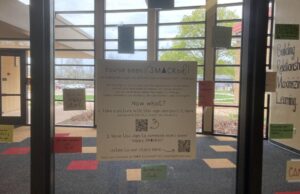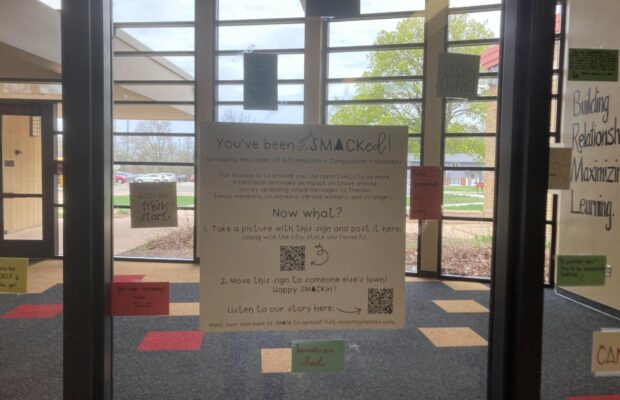How cell phones have an academic impact

Sophomore Jaden Swarts, who is currently doing online school, was given her first phone when she was 12 years old. She only needed it for emergencies or when she absolutely needed to call one of her parents. Just two years later she got her own cell phone. Swarts’ mother was very particular about how much screen-time she got, which made Swarts enjoy being outside and in nature, rather than inside. She never had a problem with being on her phone too much; it wasn’t the most important thing in the world to her.
Being a pre-teen without a cell phone was hard for Swarts to stay connected with her friends. Her peers were getting new phones and more social media while she wasn’t, which made her feel separated from the rest of her grade. Swarts’ cell phone has never affected her mental health negatively, “It does always put me in a good mood to see a text from a friend, or FaceTiming a friend,” she said.
She currently does online school, which has led her to be on her phone more than she was last year. “Right now being in online school, it’s one of the few ways to keep in touch with my friends, but I don’t believe that I have to be on my phone 24/7,” Swarts said. Her parents understand that her phone is the only way to communicate with her friends, so they are not concerned that she is on her phone more than she was last year. Being on her phone more has caused Swarts to procrastinate her schoolwork, but she doesn’t believe she is addicted to her phone.
A surplus of children are getting cell phones at a younger age every year. Swarts said that giving cell phones to children causes them to feel more grown-up and diminishes that “let’s go outside and have fun” mentality. “I think that it is causing them to feel more dependent on finding enjoyment in watching YouTube or Netflix rather than spending time with their friends,” she said.
Swarts said she believes that too much technology is bad for humans. She said, “There have been so many scientific studies that show that it dulls human emotions and it makes people feel more distant even though they are a phone call away. I think that technology is making us into more of a robot and less of a human.”
In a Hi-Line survey given out to CFHS students, out of 127 students, most got their first phone at the age of 12, (78 percent) of the students never had restrictions on their screen time growing up. Based on the interviews, the students that had screen time restrictions on their devices when they were younger or weren’t on their phones all the time eventually performed better in school than those that didn’t.
Junior Claudia Patterson, was given her first iPhone by her parents right before she turned 13. Patterson never saw her phone as a distraction as a child. She left it charging in her kitchen while doing schoolwork. She didn’t have social media growing up because she simply didn’t want it. Her phone was strictly for texting and calling her friends and family.
Patterson doesn’t feel the need to constantly be on her cell phone. “I take breaks and have personal goals to not be on it as much. As a kid my parents just kinda let me figure it out if I was on my phone too much or not. I didn’t really have too much screen time, and I would try to not be on my phone especially because I have members at home that I should interact with instead of having a screen in my face,” she said.
Science teacher Logan Mork said he notices one to two students on their phones each class period. Although Mork immediately intervenes, he does notice a significant difference in which group of students gets better grades: students who are on their phone in class and students who are not. “A lot of the times when they’re on their phones and disengaged, they think they can make it up outside of class, and unfortunately some don’t take the time to make it up outside of class,” Mork said.
What is the appropriate age to get a phone? “I think that 6th or 7th grade is an appropriate age to get a cellphone because it is when kids are becoming more involved in extra-curricular and it’s when they need to be able to text that friend when they are having a bad day,” Swarts said.









You must be logged in to post a comment Login